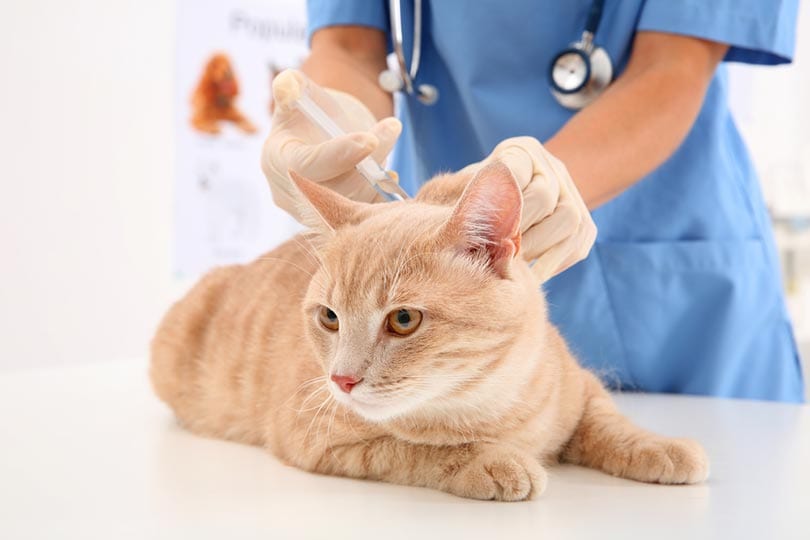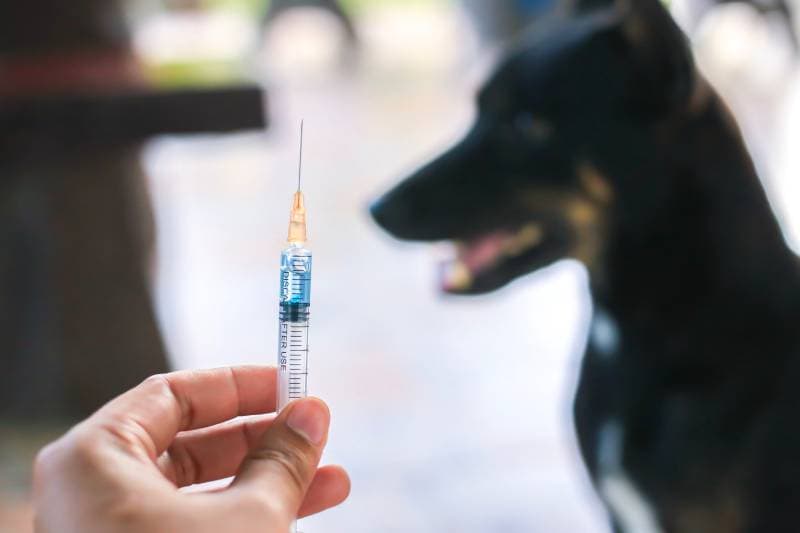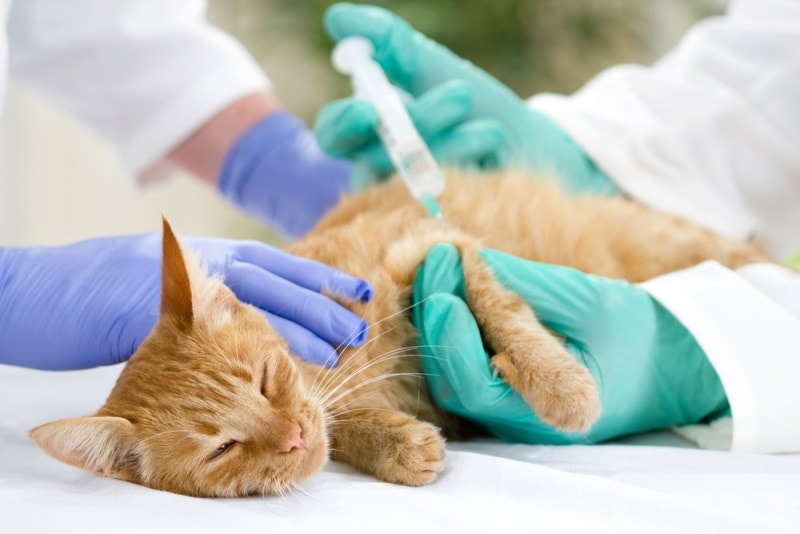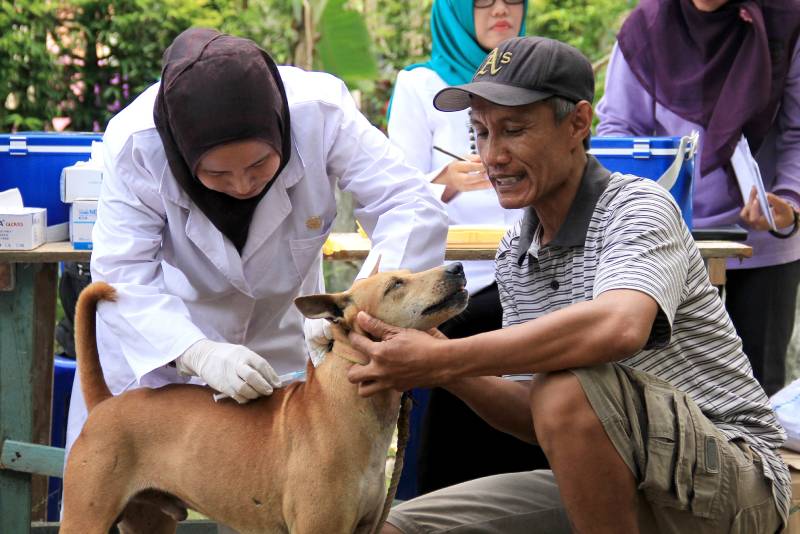In this article
World Rabies Day might sound like a fresh new phrase you’ve never heard before, but this holiday has been in motion since 2007. The entire purpose was to raise awareness about the world’s most deadly disease to spread information and encourage timely vaccinations. World Rabies Day is a holiday all the continents can celebrate on September 28th each year.
So, if this is the first you’re learning about it, we will explain all the details about rabies and how you can participate this September.

What Is World Rabies Day?
It is designed to spread awareness around the eradication of this vicious virus, helping to protect pets all around the globe.


What Is Rabies?
Rabies is a serious neurological virus that ravishes any mammal it infects. This virus is always lethal if an animal is infected. Luckily, the rabies vaccination for pets was introduced in 1885 and perfected by 1908.
Now, it is a legal requirement in all 50 states that dogs must be vaccinated against this disease. Some require biannual or annual shots, while other states allow revaccination every 3 years.
In the entire world, 59,000 humans die from this horrific disease, primarily occurring in Africa and Asia. Approximately 99% of these causes come from our beloved canines due to a lack of preventative care, regardless of whether the dog is a stray or a pet.
How Dangerous Is Rabies?
Rabies is always fatal—one of the deadliest viruses to strike a mammal. With that fact alone, you must vaccinate your dog or cat against rabies so that they can’t contract or transmit the virus to others.
Without proper vaccination, your pets become vulnerable to transmission. If an animal with rabies were to bite or scratch them, the virus can transfer, which could put your animal, other pets, and people at risk.

How Does Rabies Work?
The rabies virus enters the system, lethal and ready to kill. However, it has quite a long incubation period before the virus becomes active in the system. After the inoculation period, the virus enters the central nervous system and brain, crossing the blood-brain barrier.
It produces a series of neurological signs that are comparable to madness before putting the host into a coma that will invariably lead to death. It is a very strategic and intelligent virus that ensures the host will not survive.
Contrary to popular belief, rabies is not solely spread through bites from an infected animal. It can also pass into your system from scratches or other damage to your skin membranes. Interestingly, rabies is not spread by blood but by saliva and other excretions alone.
Signs of Rabies
For both animals and people, the first signs of rabies might be stinging or itching at the site of the bite or scratch. Quickly, they are followed by many neurological and musculoskeletal signs that eventually lead to total body failure.
- Excessive salivation
- Delirium
- Aggression
- Nausea
- Muscle contractions
- Dizziness
- Fever
- Fatigue
- Paralysis
- Brain death
- Dilated pupils
- Headache
- Confusion
- Pins and needles
- Light sensitivity
- Seizures
- Death
In the United States alone, rabies is incredibly rare. According to the CDC, there are only 1 to 3 cases of rabies reported each year in humans. Slightly more, 60 to 70 dogs in the US every year contract rabies.

Why Are Rabies Vaccines Important for Animals?
Rabies vaccines are important because this relentless virus is 100% preventable but otherwise 100% deadly. So, your dog will be fully protected against the rabies virus if they ever come in contact with it. However, it is fatal if they start showing signs before receiving the vaccine.

Can Humans Get Rabies?
Humans can get rabies if they are bitten or scratched by an infected animal. Thankfully, rabies in humans is very uncommon, thanks to modern-day vaccines.
However, the rabies vaccine is not among our routine shots. These shots are carefully administered to high-risk workers as a preventative. However, most people never receive the vaccine until after exposure.
What Is the Cure for Rabies?
Once a body is infected with rabies and the signs start taking hold, there is no cure for this disease. Luckily, this disease takes quite a long time to incubate in the body before signs are ever-present.
Therefore, anyone with rabies exposure can take the vaccine to eradicate the potential of becoming symptomatic.


Rabies Vaccines for Humans
Louis Pasteur was the creator of the rabies vaccine. He injected a 9-year-old boy with a successful vaccine during the late 19th century.
It might come as no surprise that certain folks are at a much higher risk of contracting rabies than others. For example, if your job is wildlife rehabilitation, you might interact with many sick animals that are exhibiting potential signs of rabies. This puts you in the direct line of fire. For your safety, many medical professionals will require or suggest that you have all preventative rounds of vaccinations.
However, if you have been bitten or scratched by a wild animal, you can sometimes avoid the vaccine entirely if the animal in question is tested. If their test comes back negative, you might have no real need to get the rabies vaccine.
However, if you cannot get the sample, many medical professionals will suggest that you get the vaccine as a precaution. Remember that the vaccine takes 7 to 14 days to take full effect once you’ve completed your first dose.
These vaccines are administered in a series of shots. First, the physician will inject you with immunoglobulin. This helps to build up your immune system to fight the virus. Next, you will receive a series of shots in your limbs to combat the potential infection.
If you have an open wound, many medical professionals inject close to the wound site. Then, you’ll need repeat injections after that. Luckily, it’s just one shot apiece, but they are typically three to four rounds before you’re considered fully vaccinated.
While rabies is almost 100% preventable through vaccination, the vaccine itself still holds risks. The rabies vaccine is closely connected to neurological conditions, such as Guillain-Barre syndrome. It also can cause general feelings of discomfort, such as flu-like symptoms.
However, we all can agree that science is amazing! The benefits certainly outweigh the risks.
Vaccines Are Pricey
Since rabies is a completely fatal disease, some might wonder why the vaccines are not part of our routine vaccination schedules. The reason is that rabies is relatively rare, especially with the control programs for household pets.
Also, it requires a series of highly expensive vaccinations that are not commonly distributed or widely available. If you are in a predicament where you need a rabies vaccine, you can spend up to $1,500 or more out of pocket, depending on your insurance.
Dogs and cats, on the other hand, have relatively lower costs for their rabies vaccinations. In the United States, one shot is typically between $20 and $30.


The First Survivor of Rabies
While rabies is entirely preventable through vaccination, it is otherwise an inevitably deadly disease. While only 29 people worldwide have survived rabies, Jeanna Giese was the first person on record to survive the virus without being vaccinated. She was only 15 years of age when she was infected with the rabies virus.
Shockingly, medical professionals were able to keep her alive through the worst phases of the disease. Thanks to Jeanna, healthcare professionals now have a new approach to rabies called the Milwaukee Protocol.
What Is the Milwaukee Protocol?
The Milwaukee Protocol saved Jeanna’s life, but it hasn’t been successful otherwise. It did show promise toward a potential treatment for rabies until it worked its way through the system.
Upon admission, the patient is put under a therapeutic coma, using specific drugs called ketamine and midazolam.
Unfortunately, this method has not worked subsequently. Timely vaccination continues to be the most efficient prevention and treatment for rabies.

How Can You Spread Awareness About Rabies?
You can spread awareness about rabies and complications for our pets and ourselves in several ways. Here are a few things you can do this year to keep people informed.
Campaign for Mass Vaccinations
There are several campaigns all over to mass vaccinate pets and even feral or stray dogs and cats. Do some research and find organizations near you that push these programs.

Donate to Local Organizations
Rescues, shelters, and other organizations can always use your help. To provide discounted veterinary services, you can donate or volunteer at these places to help with costs.
Post on Social Media
Do some research, find some well-informed articles or other tidbits of information, and share it on your social media accounts. Some people might not understand the severity of the disease and could be lax about getting their animals vaccinated.
Spreading awareness can educate people who might not understand the severity or necessity.

Summary
Human beings are so lucky to have the power to provide appropriate treatments and medications to ourselves and the animals of this planet. Rabies is a very complex, extremely deadly disease that science still does not fully understand, nor are scientists able to eradicate it.
However, thanks to preventative vaccines, humans and pets have much less of a worry about this terrible virus. Spread awareness of how you see fit and make sure to keep your pets protected on a timely schedule.
Featured Image Credit to Chendongshan, Shutterstock


















